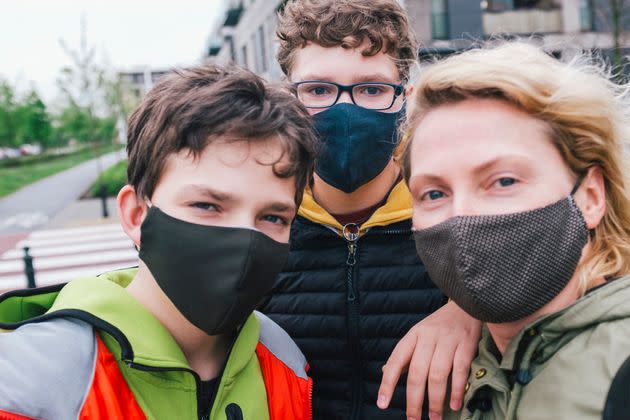How To Avoid Burnout When You're Parenting A Child With Special Needs

Tilley Creary has really come to understand stress, these past few months. The Toronto-based married mother is parenting two boys, ages eight and 10, the youngest of whom has Autism Spectrum Disorder (ASD) and would typically have language and communications supports through school. In pre-pandemic times, he also had one-on-one support with a dedicated educational assistant (EA). But since the shelter-in-place directive due to COVID-19, there has been no school structure and no professional help.
Creary’s youngest son is “the happiest and most loving kid you’ll ever meet,” Creary told HuffPost Canada. But the change to his daily schedule has been difficult for him to grasp. The fact that his specialized school supports are once again up in the air (as they are at the end of every academic year), is an extra worry for his mom and dad.
While every Canadian parent currently has anxieties around the uncertainties of childcare, schooling and the upcoming fall term, for those who have kids with special needs, the pandemic can make the challenges even more overwhelming. “I would love for supports to remain in place once they are given,” said Creary. “Every year I have to hope and pray that the EA in my son’s school doesn’t get reassigned or cut out all together.”
We’re just hunkered down, the two of us, trying to keep sane. It’s a bit overwhelming at the moment and I worry about the isolation Knox and children like him will endure.”
The self-isolation imperative has been weighing heavy on these parents. In Creary’s case, her husband works outside the home, so she’s worried both about his safety and well-being and that of her boys, and she’s doing much of the hands-on work of parenting solo.
While both of her sons have needed more from her, with the pandemic creating so much uncertainty, Creary puts in extra efforts to help her child with ASD feel secure.
As is typical of children on the spectrum, her eight-year-old is most...

 Yahoo Lifestyle
Yahoo Lifestyle 
